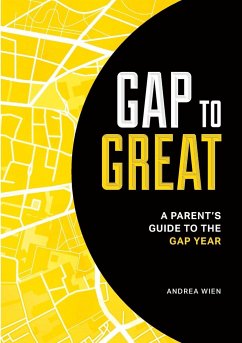In his TED Talk, author and speaker Mark Lindquist says the most uninformed decision we'll ever make is when we're forced to choose our college majors. Think about it: before we've even had to do our own laundry, we're expected to decide what we want to do every day, for the rest of our lives. Seems a little backwards, doesn't it? Today, over 70% of the American workforce is disengaged from their jobs. To put it simply: the traditional system isn't working. Instead, it's forcing people into degrees that lead to mounds of student loan debt, unfulfilling careers and high levels of unnecessary stress and frustration. Andrea Wien knows firsthand that blindly following the paved path doesn't automatically equal career success and ultimate fulfillment. At 28 and unhappy with her own career direction, she started asking questions about the journey she'd taken: high school graduation, right to college, an internship and then onto her first job without ever pausing to figure out exactly what made her tick. What she realized is that by pursuing a degree and a career that she didn't have a chance to explore in the real world, she - like so many others - had chosen poorly and set herself up for failure before she'd taken her first credit hour. According to Andrea, this is a recipe for disaster, and something that happens day after day all around the world. "By the time I finally did an internship in my field and realized I didn't like it, I was too far down the path to turn around and start over. Instead, I'd pushed on, graduated with a degree that wasn't right for me and took the first job I could find because I needed to start paying bills. Talk about getting off on the wrong foot." How do we counteract this problem? Andrea believes the gap year is a good place to start. A concept born in England that's migrated to countries all across the globe, gap years are gaining momentum as the answer - or at least the beginnings of an answer - about what comes next. But while the figures and statistics on gap years are nothing short of extraordinary, Andrea finds that parents can still be hesitant to send their child off for a year of adventure, learning and the great unknown. It makes sense that parents want to protect their children (and often their savings accounts), rather than put them on the train to Nowhereville: destination "back on mom and dad's couch." In this book, she tackles head on the most common concerns that parents have about the gap year. These include: Will he be safe? Will she ever go back to college? Can she defer her admission to college? How much will this cost? What kind of gap year should he do? How can I start the gap year conversation? How can a gap year help him get ahead career-wise? How do I explain a gap year to my family and friends? This is the book that parents of teenagers can't afford not to read.
Hinweis: Dieser Artikel kann nur an eine deutsche Lieferadresse ausgeliefert werden.
Hinweis: Dieser Artikel kann nur an eine deutsche Lieferadresse ausgeliefert werden.








